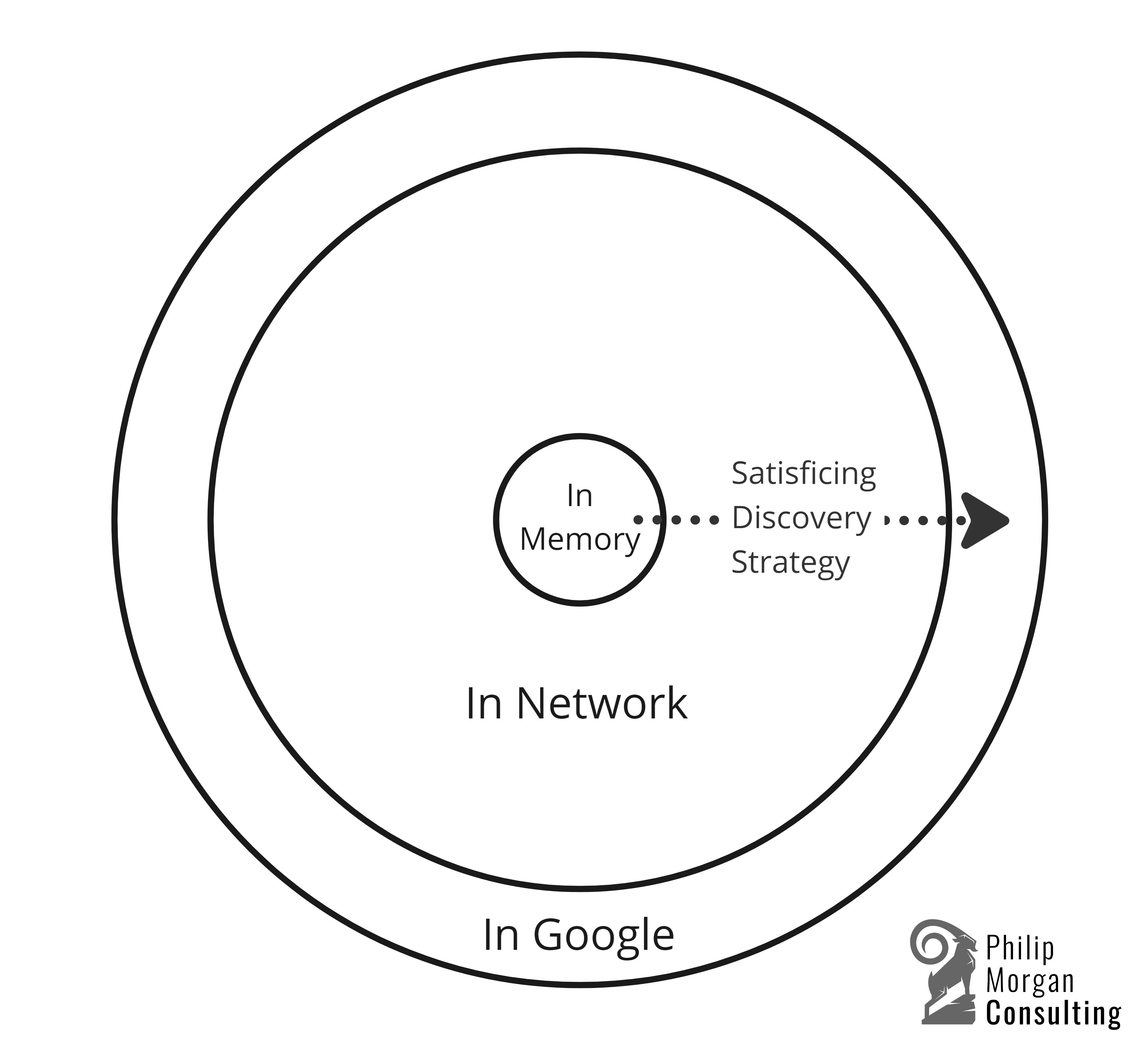09: Acting Like A Specialist#
If the winds of luck are favorable for you, you may update your communication with the market as discussed in the previous chapter and have a great fit client show up the next day because they stumbled across your website[This happened exactly as described to a colleague of mine. This is the only time I’ve ever heard of this happening, though.]. The rest of us, however, have to exert additional effort to find good-fit clients, even after specializing. The specialization makes this effort more effective, but it’s still work; the work of business development, or bizdev for short.
Just as the word competition primes us to think in terms of loss, the term business development (or the subset of business development activities known as lead generation) primes us to think in terms of making things happen. While this is generally a good way to think about the meaning of business development, it can lead to a harmful misperception.
Bizdev and lead generation are not able to cause buyers to acquire your services if they do not want or need those services[If a buyer was “on the fence” about buying a service, your bizdev or lead gen activity might be just enough of a “nudge” to spur them to take action, but that’s about the most persuasion we can hope for. Direct response copywriters go on and on about the power of persuasive copy, but there is a world of difference between the market for $99/month investment newsletters and custom software development services.]. Bizdev or lead generation does not create liquidity in a market. Remember, in a market with at least some liquidity, sellers can find full-price buyers sufficiently quickly. This is because the buyers already understand the thing being traded in that market and already need or want it in sufficient volume to allow quick-enough full-price trades.
Bizdev and lead generation can cause buyers in a liquid market to find or prefer your services over a competitor’s, but they cannot create market liquidity. Yes, bizdev and lead generation do make things happen. But they are not able to create market liquidity on your terms[Thought leadership can create market liquidity if you have sufficient resources to invest in the thought leadership and the winds of luck blow your way.].
If you want to understand business development, it’s best to step outside the bubble of the sell side of the market and look closely at the buy side of the market. How do those who buy services like yours naturally approach the problem of discovering, vetting, and contracting for those services? Of course, you have some data about buyer behavior via your own interactions with buyers and the stories you’ve heard from others.
I have systematically studied the question of how those who buy custom software development services go about discovering, vetting, and contracting for those services. My data is necessarily incomplete, but it probably covers a broader scope than your experience.
There are two things I want you to understand about buyer preferences and behavior. And to be clear, I am speaking only to the case of buyers of custom software development services:
There are two kinds of buyers: professional and non-professional buyers. Professional buyers use a more robust, rigorous process when acquiring services. Non-professional buyers are satisficers who use a less robust, rigorous process for acquiring services. Non-professional buyers acquire services in order to solve a problem, not because acquiring services is a primary part of their job description.
Non-professional buyers use 3 methods for discovering the service provider they need. They start with the easiest of these methods, and reserve the hardest of them for last. The diagram below illustrates this movement from easiest to hardest, showing how our satisficing non-professional buyers search their memory for a viable option, and if they find no satisficing solution there they move to querying their social network (often both personal and professional), and if they find no satisficing solution there they will undertake the risk and effort of searching amongst strangers on the wilds of the Internet. In aggregate, somewhere around 60 to 70% of searches for a custom software developer (solo or firm) are resolved without going beyond the buyer’s social network. That’s why the layers on the diagram have different relative sizes.

Because the majority of searches for a custom software development solution are resolved when a buyer queries their memory or social network, I think of bizdev as first working to maximize the amount of opportunity that you intercept. You aren’t so much generating leads or developing business as you are intercepting person-to-person searches for the kind of service that you provide[This is definitely a simplified way of thinking about the actual complexity of bizdev, but it’s a simplification that gets us thinking about things effectively. I’ll add nuance where needed as we go.].
The primary task of acting like a specialist is to make yourself more discoverable by buyers who are searching their memory and social network for services like yours. In the previous chapter we talked about how to make your website and online presence clear, distinctive, and memorable. Now let’s look at how to make you more distinctive and memorable in a way that intercepts more of those 60 to 70% of searches for a custom software developers are resolved without going beyond the buyer’s social network.
Past clients
High-probability nodes
Other nodes
Strategic network growth
Pro-bono education (if desirable or necessary)